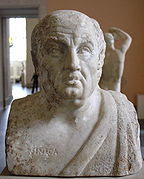
Transformation is one of the hallmarks of the kingdom of God. Jesus redeems us and then begins to sanctify us, transforming us into His image. Also, Jesus became man, busting up into history to plant the kingdom seeds that would ultimately change the world. He now sits at the right hand of God the Father waiting for us, by the power of the Holy Spirit, to transform the world into the place He intended it to be. In short, Jesus changes us so we can change the world.
One of the great transformation stories in the New Testament is that of Jesus’ disciples, James and John, the sons of Zebedee. They must have been an interesting pair. Their nickname was Sons of Thunder. I suspect this was because they were zealous, aggressive, ambitious and competitive. Once, when a Samaritan village refused to accept Jesus, James and John asked Jesus if He wanted them to call down fire from heaven and destroy the village. (Luke 9:54). Another time, they asked Jesus (through their mother) if, in Jesus’ kingdom, they could sit on his right and left. (Matthew 20:20-23).
Yet later, after Jesus’ sacrificial death and resurrection, and after the outpouring of the Holy Spirit, they apparently underwent a change. They were still zealous and aggressive. They both risked martyrdom because they refused to stop preaching the Gospel. But there is evidence they had acquired a profound humility.
Church historian Eusebius, writing in the early 300’s A.D. notes that after Jesus’ resurrection, when it came time to pick a leader of the church in Jerusalem, rather than advocate for themselves, James and John recommended James “the Just”, the brother of Jesus, be appointed. In other words, in just a few short years, the brothers who asked to sit on Jesus’ right and left in His kingdom had become so humble they refused to even suggest they be appointed as leader of the local church. It’s change like that, multiplied across peoples and generations that adds up to a changed world. GS




